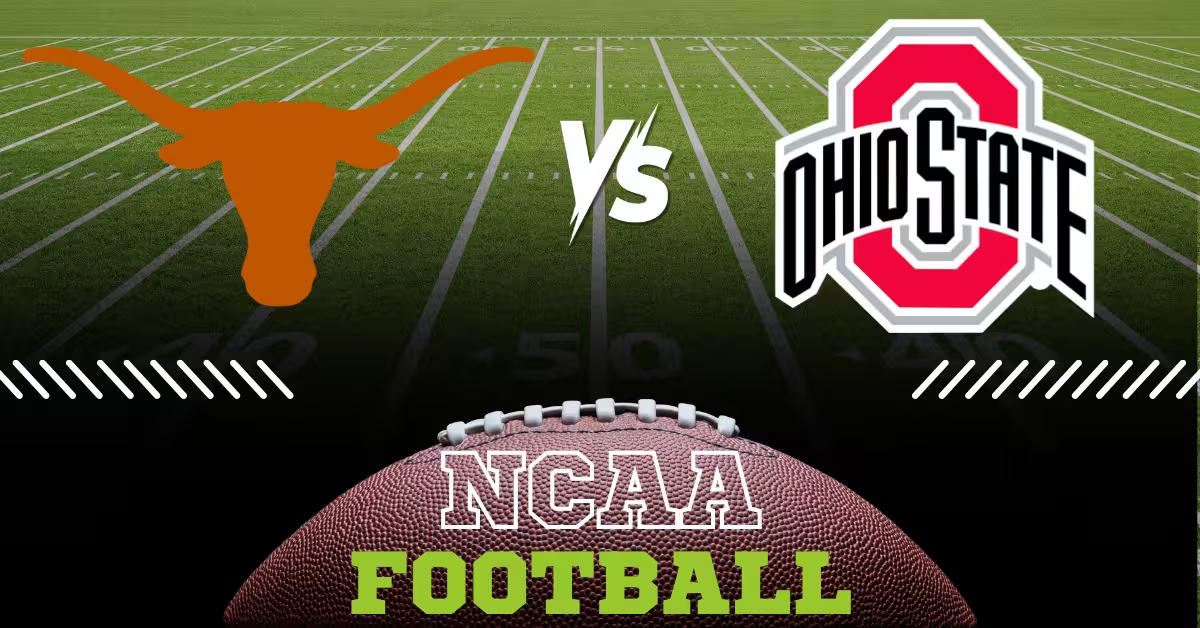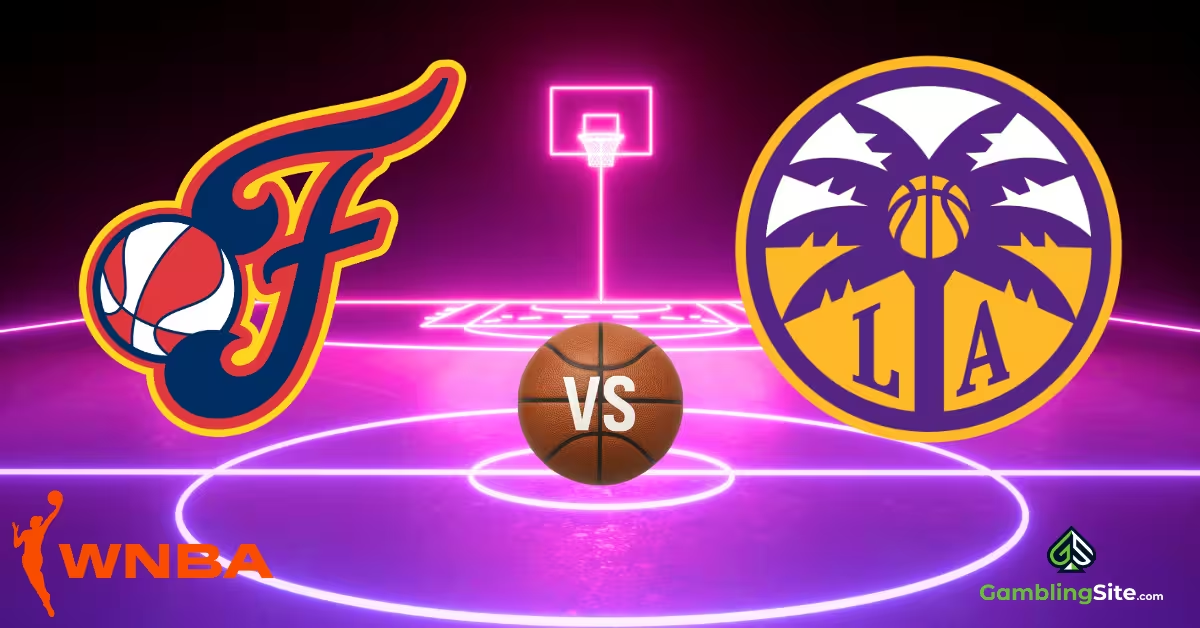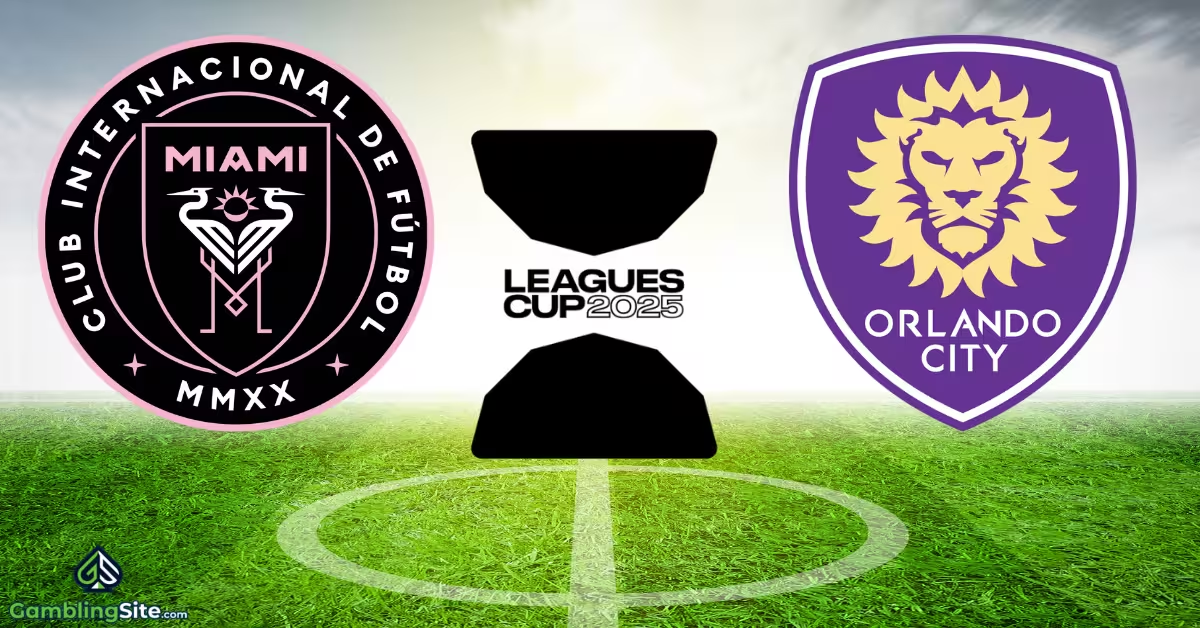The Psychology of Betting Bonuses: How They Hook You

Have you noticed how a “free bet” or deposit match from a sportsbook feels almost too good to pass up? Like all things that feel that way, it’s usually true, and it’s designed to make you feel that way!
Betting sites and platforms use carefully crafted incentives and psychological tricks to make these offers a little too irresistible. And we want to find out how they do it by looking into the psychology of betting bonuses and how sportsbooks use science-backed tactics to keep you playing.
And most importantly? We will tell you how you can spot the tactics, stay in control of your betting, and provide some tips on how all bettors can stay smart and not fall prey to manipulative tactics!
What Are Betting Bonuses?
Betting bonuses are those promotional rewards that sportsbooks and casinos offer to attract and retain players. They come in a lot of forms, but the main premise is always the same: give the player extra money, credits, or perks to encourage more betting. Below are the most common types of betting bonuses you’ll come across!
- Sign-Up or Welcome Bonuses: These are rewards for new customers when they create an account and make their first deposit or bet. For example, a sportsbook might offer a 100% deposit match (they’ll match whatever you deposit, say up to $500) or a free bet credit on sign-up. The goal is to establish a positive first experience and loyalty from the start.

- Deposit Matches: A deposit match means the bookmaker matches a percentage of your deposit with bonus funds. For instance, a 50% deposit match up to $200 means if you deposit $200, you get an extra $100 in bonus funds. This gives you a bigger bankroll to play with, but there are always strings attached, like wagering requirements.
- “Risk-Free” Bets: This popular promo promises that if you lose your first bet (or another specified bet), the sportsbook will refund you, typically in site credit or a free bet. It’s marketed as a no-lose proposition for your first wager. Like, “Bet $50, and if you lose, you get $50 back.”
- Loyalty Rewards and VIP Programs: To keep existing customers engaged, many platforms have tiered loyalty schemes or VIP clubs. As you bet, you earn points or status; climb the tiers and you unlock perks like free bets, cashback on losses, better odds, exclusive event invites, or personal account managers. It’s analogous to airline miles or credit card rewards, only for gambling.
- “Risk-Free” or “No Sweat” Parlays, Odds Boosts, and Other Promos: Sportsbooks constantly roll out limited-time offers, like “Get a $10 free bet if your parlay loses by one leg,” or boosted odds on certain games. These are short-term promos meant to jumpstart action by giving you a small edge or cushion “on the house.”
Why They’re Offered
Bonuses are marketing tools. They help bookmakers attract new users, encourage bigger deposits, and increase the lifetime value of each player. The online betting space is super competitive, and a nice bonus can entice someone to choose one app over another. For the operator, it’s an investment: they’re willing to give you a bonus now because they expect you’ll gamble more (and eventually lose more) in the long run.
Bonuses also boost engagement and loyalty. A well-structured loyalty program “encourages repeat play, enhances player engagement, and maximises LTV (lifetime value)” of players. The more you play, the more rewards you earn, which in turn motivates you to keep playing, creating a cycle beneficial to the house.
Make no mistake about it: The offers are super effective. In a UK survey, 76% of bettors who received a promo offer ended up taking it, with free bets having one of the highest uptake rates (nearly 6 in 10 people offered a free bet used it). That conversion rate highlights why companies spend millions on promotions.
Of course, bonuses aren’t free money; there are always terms and conditions. Wagering requirements (rollover), odds restrictions, time limits, and withdrawal rules are the fine print that guarantees the house always wins.
The Psychological Principles Behind Betting Bonuses
Betting bonuses work so well because they tap into fundamental psychological principles and biases. Sportsbooks have essentially weaponized behavioral economics and psychology to push you into betting more. Below are the five main concepts at play and how they’re used in bonus offers!
1. Loss Aversion
Humans hate losing. In psychology, loss aversion refers to the idea that losing something feels worse than gaining the equivalent amount feels good. In other words, the pain of losing $50 is worse than the joy of winning $50. This principle, famously demonstrated by psychologists Daniel Kahneman and Amos Tversky, shows up in all kinds of decisions.
How do sportsbooks use loss aversion? By reducing the fear of loss through “risk-free” offers. A risk-free bet (or a “second chance” or “no-sweat” bet) is explicitly designed to remove or soften the sting of losing.
- A promo might say: “Bet $50 on your first wager, and if you lose, we’ll refund you $50 in site credit.” From a bettor’s perspective, this lowers the psychological barrier to placing that bet.
- You’re thinking: Worst case, I don’t really lose my money. The fear that usually comes with risking money is eased, so you’re more likely to take the plunge.
Economists note that people are much more willing to gamble when they feel insulated from losses, which is exactly what these refunds do. In effect, the sportsbook is leveraging your loss aversion to get you to place a bet you otherwise might skip.
Want an example? A new bettor might normally wager $20 on a game, but with a $1,000 “risk-free” promo on the table, some will bet the full $1,000, figuring there’s nothing to lose. This is exactly what the sportsbook wants; you’ve now deposited and wagered far more than you otherwise would, all under the comforting blanket of “it’s risk-free.”
2. Operant Conditioning/Reward Systems
If you’ve ever taken Psychology 101, you no doubt remember B.F. Skinner’s operant conditioning experiments. Skinner showed that you can train animals (and by extension, people) to repeat behaviors by rewarding those behaviors on certain schedules. Give a pigeon a food pellet every time it pecks a button, and it will keep pecking. What’s especially powerful is intermittent reinforcement, when rewards are unpredictable. In Skinner’s research, unpredictable rewards actually created stronger, more persistent behavior patterns than consistent rewards.
Sound familiar? It’s the same mechanism that makes slot machines addictive, and sportsbooks use it in their bonus systems too. Operant conditioning in betting bonuses works like this: You place bets, and occasionally you get a “reward” past your winnings; maybe a bonus drop, a profit boost token, a free bet for this weekend’s game, loyalty points, etc. The little rewards keep you engaged and coming back.
Sportsbooks tie these rewards to specific behaviors they want to encourage. Bet more, stay longer, play certain games, and you’ll be rewarded.
There’s also a neurochemical angle: dopamine, the brain’s reward neurotransmitter. When you receive a reward, like an unexpected bonus or a winning bet, your brain releases dopamine, which feels good and reinforces whatever behavior preceded it. Gambling sites are engineered to deliver these “dopamine hits” frequently, through animations for wins and regular little incentives. This trains your brain to associate the app with excitement and pleasure, much like social media apps train us with likes and notifications. The dopamine rush from a bonus or an animated win celebration can unconsciously prompt you to place more bets in search of that next hit.
3. The Sunk Cost Fallacy
The sunk cost fallacy is a bias where we continue an endeavor simply because we’ve already invested in it, regardless of whether continuing is rational. In everyday terms? “I’ve come this far, might as well see it through.” Gamblers fall prey to this (“I’ve already lost $500, I can’t walk away now or it’s all for nothing”), and bonus structures exploit it as well.

How do bonuses leverage sunk costs? Consider wagering requirements on a bonus. If you got a $100 bonus, it comes with a 10x rollover, meaning you must wager $1,000 to unlock any winnings. You play for a while and complete $700 worth of wagering. At that point, the rational decision, if you’re not enjoying it, might be to quit. But many people won’t, because “I’ve already come this far, I’d waste all that play if I stop now.” That’s the sunk cost fallacy talking. The bonus conditions create a psychological trap where your past investment (time, money wagered) pushes you to keep betting just to not lose the value of the bonus.
4. Variable Rewards: The Slot Machine Effect
This principle is closely related to operant conditioning, but it’s important enough to highlight on its own: variable rewards. In gambling, as in many addictive systems, you are not rewarded every time; instead, rewards (wins, bonuses, jackpots) come unpredictably. This unpredictability actually makes the behavior more compelling. Psychologists note that a variable schedule of reinforcement leads to the highest rates of response (think of how a slot machine, which pays out on a random schedule, keeps people pulling the lever or pressing the button relentlessly).
Betting bonuses can contribute to a variable reward system. Not every bet wins, and not every day comes with a bonus, but occasionally you get a surprise: maybe an email pops up saying you’ve been given a free bet, or you hit a big win, or you unlock a random prize. The timing feels random or out of your control, and that’s exactly what keeps players engaged. “Unpredictable rewards create stronger behavioral patterns than consistent ones,” as demonstrated in Skinner’s research.
Casinos also incorporate random bonus games or surprise rewards in their online slots and apps. You could randomly trigger a bonus round in a slot or get a pop-up challenge from the sportsbook (“Today only: random happy hour bonus, spin this wheel for a prize!”). The intermittent surprises mimic the uncertainty of a slot machine pull.
The effect of variable rewards is called the “slot machine effect” for a reason; it’s highly addictive. Our brains get hooked on the maybe of a reward. If every bet gave a guaranteed small win, it would actually be less exciting than the current scenario, where some bets give nothing and some give big payouts or bonuses. The possibility of a large reward at unpredictable intervals? That creates a lot of excitement and perseverance.
5. FOMO (Fear of Missing Out)
That knot in your stomach urging you to hurry up? That’s the infamous FOMO, or fear of missing out. Gambling operators are masters at inducing FOMO with limited-time and exclusive offers.
Fear of Missing Out is the anxiety that others are enjoying rewards or experiences that you’re not. Casinos and sportsbooks amplify this by crafting promotions that feel exclusive or urgent, like the following:
- Limited-Time Offers: A bonus that expires soon pushes you to act quickly. Those banners, “Claim your bonus before midnight!” and “This weekend only!” are engineered to create a sense of urgency. The psychological trigger is that you might miss a great deal if you don’t act right now, which can override your more rational decision-making.
- Scarcity and Exclusivity: If a promotion is framed as exclusive (“for VIPs only” or “limited to the first 100 callers”) or scarce in availability, it appears to be more valuable. We tend to assign more value to things that are rare. A countdown timer on a promo page vividly imparts both urgency and scarcity; you literally watch time running out. Seeing “Only available today!” or a ticking clock triggers a small panic that you’ll miss out if you hesitate.
- Social Proof – Everyone’s Doing It: Sportsbooks love to highlight recent big winners or how many people are joining a promo. Seeing that others are getting bonuses or hitting jackpots can stir up FOMO.
- One-time or VIP-Only Perks: VIP programs play on FOMO by offering experiences money can’t (usually) buy: exclusive event tickets, private tournaments, special gifts. Non-VIPs might fear they’re missing out on these special rewards. Meanwhile, those in the VIP club fear losing their status (which ties back to sunk costs and also FOMO of dropping out of the elite circle).
All of these tactics leverage a simple idea: we don’t like feeling left behind. When a sportsbook sends a push notification like, “Today only: Bet $50, get $50 free!”, it’s pressing the FOMO button. You get the sense that if you don’t act, you’ll regret it later, so it creates a false sense of urgency that can lead to impulsive bets without proper consideration of the terms or whether you even wanted to bet in the first place.
How Bonuses Influence Player Behavior
We’ve covered the theory, so now let’s talk about the real-world effects of these bonuses on how people bet. By design, bonuses and promotions shape player behavior in ways that benefit the house. Below are a few of the main behavioral changes that happen when bettors are under the influence of bonuses!
When players are betting with “house money” (bonus funds or winnings from a free bet), their risk tolerance spikes. This is known in behavioral finance as the house money effect; people are more willing to take risks with money they consider not to be their own original capital. If you have $50 of bonus credit, you might throw it on a long-shot 5-leg parlay without the usual hesitation, whereas you’d never risk $50 of your hard-earned cash on that kind of bet.
It’s worth noting that while bonuses increase risk-taking, the expected value for the player is usually lower on those risky bets. The sportsbook knows that if you start firing at long odds, you’ll rarely win, and they’ll pocket the rest. The bonus might give you the rope to take riskier swings, but statistically, that means more people hang themselves (financially speaking) with that rope.
Bonuses can make you play longer than you intended. Think about it: if you deposit $100 and get another $100 bonus, you now have $200 to play with. That likely means more spins of the slot or more bets on the table, extending your session. Casinos want you to play longer because the longer you play, the more the odds work against you. Bonuses help achieve this in a few ways:
- Extended Bankroll: By boosting your bankroll, bonuses literally give you more “ammo” to continue betting. A casual player might have stopped at an hour of play when their $50 ran out, but with an extra $50 bonus in the account, they stay for a second hour. Those extra hours translate to more losses over time, which is what the casino counts on.
- Prolonging Losing Sessions: A bonus can act like a cushion that keeps a losing streak from kicking you out of the game. If you lost your initial $100 deposit, normally you’d be done (unless you choose to redeposit). But if you have a bonus that still has funds left or free spins remaining, you’ll keep playing. Even a small cashback or reload bonus after losses can encourage you to continue rather than call it quits. It creates a “second wind” for the session.
- Habit Formation: Longer sessions aren’t just about one day! They also feed into habit-forming. If bonuses regularly extend your play time, you can find yourself incorporating those longer sessions into your routine. It normalizes spending more time gambling. And when the bonus runs out, the habit might persist, leading you to play longer on your own dime.
The upshot is that bonuses decrease the natural stopping points that might otherwise shorten a gambling session. Normally, running out of money or hitting a personal loss limit is a cue to stop. Bonuses either refill the tank (with extra funds) or dangle a carrot to keep going (“just a few more bets to clear this”).
In the industry, this is seen as a positive: “Rewards keep players engaged and reduce churn.” But from a player’s perspective, that means it’s easy to lose track of time and spend more of your day (and money) on the app or casino floor.
When you’re gambling with bonus money or winnings from a bonus, you can experience a sense of it being “not real money.” Psychologically, this is related to a concept called mental accounting; we treat money differently depending on its source or intended use. Money from a paycheck will be handled more cautiously, but a $50 casino bonus or $200 you won from that bonus feels like play money. This causes decreased inhibitions in betting behavior:
- Looser Decision-Making: Players become more impulsive and less analytical when betting with funds they consider a windfall or freebie. The usual risk filters come down.
- Higher Tolerance for Losses: When inhibitions are lowered, bettors may blow through loss limits or budget thresholds they’d normally adhere to.
- Overconfidence: There’s a psychological phenomenon where early wins or playing with found money can boost confidence in your betting ability. If you hit a win thanks to a bonus (say you turned a free $20 bet into $100), you might feel like you have a knack or that the bonus is “fueling” you. This can make you overestimate your odds of winning going forward, leading to riskier bets or larger stakes.
- Reduced Perception of Consequences: One dangerous aspect is that, because bonus money losses don’t “sting” as much, players might develop a diminished emotional response to losing. Losing real money can be painful and prompt you to stop; losing bonus money feels like, oh well, it was extra. But this can set a precedent; you become conditioned to not feel as cautious or regretful about losses. When you revert to real money betting, that attitude can persist, making you a looser gambler overall.
Case Study Examples
To ground all this theory, we are gonna walk through two real-world scenarios where betting bonuses dramatically influence behavior: one for a “risk-free” first bet, and one for a VIP loyalty program. The examples show how the psychological triggers that we discussed are put into action!
Example 1: The $1,000 “Risk-Free” First Bet
Almost every U.S. sportsbook in recent years has run promotions along the lines of “Risk-Free First Bet up to $1,000.” It sounds like an amazing welcome offer; who wouldn’t want their first big bet to carry no real risk? Here’s how it typically works and how it impacts bettors:
Scenario: A new user signs up and claims the $1,000 risk-free bet. They deposit a large sum (let’s say $1,000, to take full advantage) and place their first bet of $1,000 on a game. Why such a large bet? Because the offer framing encourages maxing out the promotion, the thinking here is, if I’m essentially insured up to $1,000, I should bet $1,000 to get the maximum benefit. Even if this user might normally only bet $50 or $100 on a game, the promotion and loss aversion in reverse (safety net) push them to take a much bigger risk.
- If the bet wins: Great! They win whatever the winnings are (say they bet on an even odds outcome, they win around $1,000 profit). The promo basically doesn’t come into play further. But they’ve now staked $1,000 on a single bet right off the bat, and that’s something they likely never would have done without the promo. This could set a new baseline in their mind for what a “normal” bet size is, or simply get them comfortable with high stakes from day one. Also, there’s no additional bonus because risk-free bets only reward you if you lose.
- If the bet loses, they don’t get their $1,000 back in cash. Instead, the common term is that they receive the refund in site credit or free bets. A sportsbook would refund that $1,000 as five separate $200 free bet tokens. Now the player has $1,000 in free bets, but crucially, the free bets come with caveats: you usually don’t get the stake back on free bet wins (only the profit), and they will expire within a week or so.
So, our user lost the first bet. They feel disappointed, but hey, they’ve got five $200 free bets as consolation. This is where psychology kicks in:
- The user now has to use those free bets, and probably quickly, because they’ll expire. They might spread them on long-shot bet,s hoping one hits big (since free bet stakes aren’t returned, it’s often mathematically optimal to use them on longer odds). This means they’re now engaging in exactly the increased risk-taking that we discussed. It’s house money in their eyes, so maybe they put a $200 free bet on a +500 underdog, another on a crazy parlay, etc.
- Let’s say a couple of those free bets win. A $200 free bet at +500 would yield $1,000 profit (stake not returned). Maybe they get lucky and end up with, say, $1,200 from various free bet wins. Are they ahead? Possibly, but not by much, because remember, they lost $1,000 cash initially. In a rough scenario sketched by a betting expert, even if a customer managed to win on all their free bets (an unlikely 1-in-32 occurrence in one analysis), they’d still only roughly break even. If they lose them all, they are, of course, out the original $1,000 deposit entirely.
- Emotionally and behaviorally, the user has now been through the cycle of chasing losses with bonus credits. They might have bet more aggressively with the credits to recoup the loss. Whether they won back some money or not, they’ve been very engaged in the process; multiple bets, possibly over multiple days, all stemming from that initial promo.
- And they are now on the hook. The sportsbook likely required them to deposit and bet that $1,000 upfront, meaning that money left their bank account. If they did lose everything, that’s a hard lesson, but notice how the “risk-free” phrasing masked that possibility? That’s why regulators in argue that calling these offers “risk-free” is misleading, because plenty of customers do end up losing their money in the end. Ohio banned the term “risk-free” in advertising, insisting that if any loss of player funds is possible, it’s not truly risk-free.
The $1,000 risk-free bet example shows loss aversion and removal of inhibition in action. The user likely would not have staked $1,000 on day one without this promo. The fear of that loss was neutralized by the promise of a refund, so they went big. Then, once in the system, they had to play through complicated bonus terms (splitting into multiple bets, no stake returned, expiry ticking all added pressure to keep betting).
From the sportsbook’s perspective, the promo did its job: it acquired a new customer, got a large initial deposit out of them, and got them engaged by placing multiple bets in their first week. The psychological hooks of the “risk-free” bet likely led the customer to make riskier and larger bets than usual.
Example 2: VIP Programs and the High-Roller Perks
There are regular sports bettors who, over time, have started wagering larger amounts, like hundreds or thousands of dollars a week. The sportsbook identifies this person as a high-value customer and invites them to join the VIP program. Let’s call our example bettor Jake.
Scenario: Jake bets a lot and loses a lot, although with wins here and there. He starts getting personal attention from a VIP host assigned by the sportsbook. This host emails and texts him, offering various perks: “Hi Jake, as one of our valued VIP members, you’ve earned a 20% reload bonus on your next deposit; let’s keep the fun going!” Or “We’d like to invite you to an exclusive event; box seats at the playoff game next month, on us, as a thank you for your loyalty.”
Ja&3 also notices he’s getting gifts, like a branded jacket, or a bottle of whiskey, or tickets to a show. The messaging is this: You’re special to us. The VIP program makes him feel like a high roller, part of an elite club.
How does this influence behavior?
- Reinforced Loyalty and Habit: Jake feels valued and maybe socially obligated to this personal host who is so nice to him. If he considers taking a break or trying a competitor, a message comes through: “Hey, we’ll give you a 50% bonus to stick around,” and he does. The VIP treatment keeps him betting with the same company and more frequently. It’s like frequent flyer programs: you don’t want to fly an airline where you’re not an Elite status when you have gold status elsewhere. In gambling terms, Jake doesn’t want to “waste” his play on a site that won’t reward her as a VIP.
- Increased Spending: The perks require maintaining a certain level of play. Jake might be subtly (or overtly) encouraged to deposit more to reach the next VIP tier or to qualify for the next exclusive event. A host might say, “If you wager another $5,000 this month, you’ll move up to Platinum where you get even better weekly bonuses and a vacation package.” This taps into goal-gradient and sunk cost as discussed; Jake has already bet so much, why not a bit more to get the “next level”? It can push him past what he initially ever thought he’d gamble.
- Normalization of Large Losses: When losing big sums becomes tied to rewards, it warps the normal pain response. The gambler sees tangible gifts and trips, which can psychologically take some of the “ouch” out of the monetary loss. “Well, I lost $10k this month, but hey, I got a free weekend in Vegas out of it.” This is dangerously alluring, as it’s essentially a partial rebate on losses that encourages continued play.
- Difficulty Quitting: The VIP experience can be very engrossing. There’s a personal relationship with the host, a feeling of being part of something, and the lifestyle perks (fancy dinners, sports events, etc.). These can create a strong emotional attachment. A VIP member is much more likely to keep gambling, even in the face of serious losses, because their gambling has intertwined with their social life and identity as a “VIP.” Quitting gambling would mean losing not just money, but also losing status, losing friendships with hosts/other VIPs, and missing out on exciting events. This is a powerful psychological barrier to stopping.
A man in New Jersey became a top VIP at an online sportsbook, betting and losing huge sums. His wife later alleged in a lawsuit that the company “actively fueled his addiction” by showering him with incentives, personal attention, and gifts as he depleted their savings. The VIP hosts would contact him dozens of times a day to keep him betting, even when he showed signs of distress. He ended up losing almost $1 million.
In Jake’s case, let’s say that over a year of VIP treatment, he bets far more than he planned, enticed by bonuses and afraid to miss out on special perks. He might even find that when she tries to slow down, the red carpet rolls up: his VIP host pays less attention, or those nice offers dry up. This is another aspect: casinos tend to lavish attention when you’re losing (their best customer) and cool off when you’re winning or not betting as much. This can create a perverse incentive where the gambler feels rewarded for losing and somewhat penalized for winning (since the VIP love might fade if they start consistently cashing out profits).
Tips for Bettors: How to Stay Smart Around Bonuses
Betting bonuses aren’t all bad; they can be fun and possibly profitable if they’re used wisely! The key is to approach them with your eyes wide open and a strategy in mind, instead of letting the psychology drive you. Below are some tips to help you stay in control when you’re negotiating bonus offers.
Read the Fine Print
Always start off by reading the terms and conditions of any bonus offer. This includes wagering requirements (rollover), minimum odds, expiration dates, maximum cashout limits, and any game or bet restrictions. The fine print is where the real value (or lack thereof) of a bonus is shown.
- Wagering Requirements: Know how many times you must play through a bonus before you can withdraw. High rollovers (e.g., 30x, 40x) can make it very tough to actually see any money from a bonus. If a bonus has a sky-high playthrough, it might not be worth your time . Look for offers with reasonable wagering terms (some experts suggest 20x or under as “fair” ).
- Minimum Odds or Eligible Games: Sports bonuses often require you to bet on odds longer than, say, -300 for it to count. Casino bonuses might exclude low-edge games like blackjack or have lower contribution percentages for them. Understand these, so you don’t accidentally void your bonus or fail to meet requirements by playing the wrong game.
- Expiration Dates: Bonuses expire. It could be 7 days for a free bet, or 30 days to complete a rollover. Mark the expiration and make sure you don’t lose the bonus by running out of time . Conversely, don’t feel rushed by short expirations into betting wildly (that’s FOMO at work). If a bonus only gives you 24 hours, it might be designed to push you into rash bets, maybe bypass that one.
- Max Cashout and Other Gotchas: Some “free” money isn’t free; there could be a cap, like you can only win up to $100 from a no-deposit bonus. Check if any such limits apply. Also, see if a deposit is required before withdrawing (some no-deposit offers still require a small deposit to verify your account before cashing out winnings).
Set Limits before Accepting Offers
One of the best defenses against bonus-induced overdrive is to decide on your limits in advance. Before you claim a bonus, set some boundaries:
- Bankroll/Deposit Limit: Figure out how much of your own money you’re willing to risk to chase or utilize a bonus, and do not exceed that. If there’s a 100% deposit match up to $200, you might decide, “Okay, I’ll deposit $200 to get the max bonus, but I won’t put in more if I lose it.” Stick to that; having a firm pre-set limit can stop you from chasing losses under the guise of “finishing the bonus.”
- Time Limit: Bonuses can encourage marathon sessions (like trying to meet a wagering requirement in one go). Set a time limit for your play, like “I’ll play for one hour with this bonus and come back later,” so you’re not drawn into an endless session that wears down your judgment.
- Win/Loss Stop: Decide on a win goal or loss stop; a clear stop rule can save you from yourself.
- Don’t Deviate Under Pressure: If the bonus has an urgency element, it’s all the more important to stick to your limits. Scarcity is a trick; remind yourself that another offer will come along. It’s better to let a bonus go than to blow past your financial comfort zone because of a ticking clock.
Treat Bonus Money Like Real Money
Respect the bonus funds as if they were your own cash. It’s easy to treat bonus credits as play-money and do things you wouldn’t normally do, but that plays right into the house’s hands. Look at $100 in bonus credits with the same weight as a $100 bill.
- Make Calculated Bets: Don’t throw a bonus bet on a crazy 15-leg parlay just because “hey, it’s free.” Unless that was a calculated strategy you’d do with cash, consider using the bonus in a way you might use your real money; maybe on a solid bet that has a good chance of turning the bonus into actual cash you can withdraw. By all means, you can take some extra risk with a bonus (since it’s meant to give an edge), but have a rationale; don’t punt it away mindlessly.
- Avoid the “It’s Not Mine” Trap: Every bonus has the potential to become real, withdrawable money if used well. If you treat it carelessly, you’re essentially wasting the value you earned. One responsible gambling tip is literally: “Treat bonus money like real money: don’t take unnecessary risks.” Doing so helps maintain discipline.
- Remember Winnings are Real: If you win from a bonus, those winnings are yours (but only after meeting conditions). Don’t fall into the trap of thinking those profits are also funny money just because they came from a bonus. Think about withdrawing some, if possible, or at least segregating them in your mind from your “play money.” That avoids the scenario of winning big on a freebie and then giving it all back because you didn’t value the win as real.
- Mental Accounting Reset: Occasionally, pause and pretend the bonus funds in your account were your deposit. Would you still bet the way you’re betting? If not, adjust. This little mental check can help snap you out of reckless patterns.
Use Bonuses Strategically
The overarching idea is to have a plan. Don’t just take a bonus because it’s there; take it because you’ve decided how you’ll use it and what your goal is!
- Low-Risk, Positive Expectation Play: If a bonus is close to break-even or profitable after wagering (some can be, especially if you play smart), focus on low-risk bets to grind through it. For casinos, that might mean high-RTP games or low volatility slots that let you cycle money without huge swings . For sports, it could mean betting on outcomes you are fairly confident in (not hail-mary underdogs) to slowly build your bankroll.
- Matched Betting: One way to guarantee profit from free bets is matched betting is a technique where you place opposing bets (one on the sportsbook with the free bet, and one on an exchange or another book) to cover all outcomes and lock in a portion of the free bet’s value as profit. This is more advanced, but there are guides and tools for it. Matched betting allows you to turn bonus offers into real money with minimal risk by exploiting the bonus on one side and laying off risk on the other. It’s legal and “turns the tables” on the bookmaker’s offer. If you’re willing to learn, this is one of the smartest ways to use sign-up bonuses and free bets.
- Arbitrage and Value Betting: Sometimes bonuses can be used to increase your stakes on arbitrage bets (bets that guarantee profit by exploiting odds differences) or to take “value bets” (where you believe the odds are in your favor). If you’re skilled in these, the bonus funds can act as extra bankroll to capitalize on edges you identify.
- Try New Games/Strategies – Within Reason: It’s fine to use a bonus as an opportunity to try something new; maybe you’re curious about blackjack or a new betting market, but didn’t want to risk your own money. A bonus can fund some exploration and entertainment. Just set a portion of it for that and keep another portion for more grounded bets.
- Cash Out When Achieved: If your goal was to, say, profit from a bonus or just have fun, withdraw your winnings once you meet the conditions. Don’t immediately re-bet all that money. Taking profits breaks the cycle and makes sure that you benefit from the bonus. You can leave a bit in to continue playing, but banking some keeps the bonus working for you, not the house.
The Ethical Debate: Are Bonuses a Form of Manipulation?
There’s no question that betting bonuses are built to influence your behavior. The real debate is whether they cross the line from harmless marketing into outright manipulation.
Perspectives from Responsible Gambling Advocates
Critics argue bonuses target known psychological biases like loss aversion and FOMO, pushing players to bet longer, risk more, and feel less in control. VIP schemes get the most heat, particularly when big spenders are bombarded with perks and personalized nudges, even while they’re losing heavily. Some see these tactics as predatory, especially when they are aimed at players who are showing signs of harm.

What Regulators Say
The UK Gambling Commission has flagged concerns about misleading promos (like “risk-free” bets that aren’t) and the aggressive use of incentives. Then there are U.S. states like Ohio that have banned certain bonus terms outright. Globally, there’s growing momentum to regulate how, when, and to whom bonuses can be offered.
Potential for Overuse or Exploitation by Bookmakers
Bonuses work, and sometimes they work a little too well. They’re really effective at drawing players in and keeping them engaged, but when tied to large deposits, high rollovers, or VIP targeting? They can and do fuel harmful behavior. The challenge is striking a balance between customer retention and responsible play.
Conclusion: Don’t Let the Bonus Psych You Out
We don’t need to pretend bonuses are gifts. They’re just marketing tools! And they use real psychological tactics, like loss aversion, urgency, and reward conditioning, to get us betting more often and for longer periods of time.
Here’s a quick debrief on the psychology of betting bonuses:
- Bonuses are designed to influence how we play.
- They can offer real value, but only if we approach them on our terms.
- Knowing the tricks behind the trade makes it much easier to stay in control.
We can absolutely take the bonus without taking the bait. As long as you treat it like what it is, a part of the game, and not as a reason to toss out the rules!

Alyssa contributes sportsbook/online casino reviews, but she also stays on top of any industry news, precisely that of the sports betting market. She’s been an avid sports bettor for many years and has experienced success in growing her bankroll by striking when the iron was hot. In particular, she loves betting on football and basketball at the professional and college levels.







